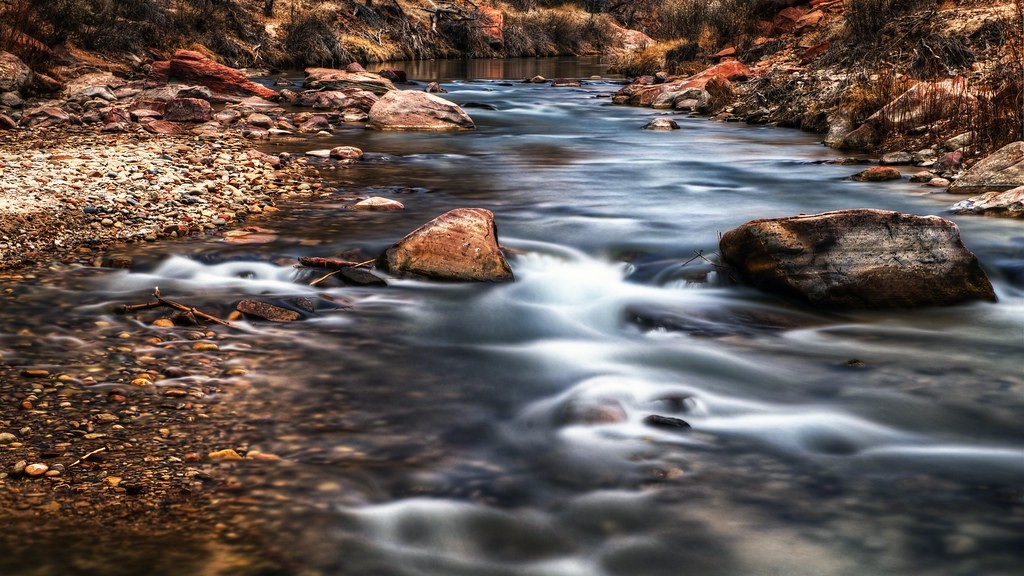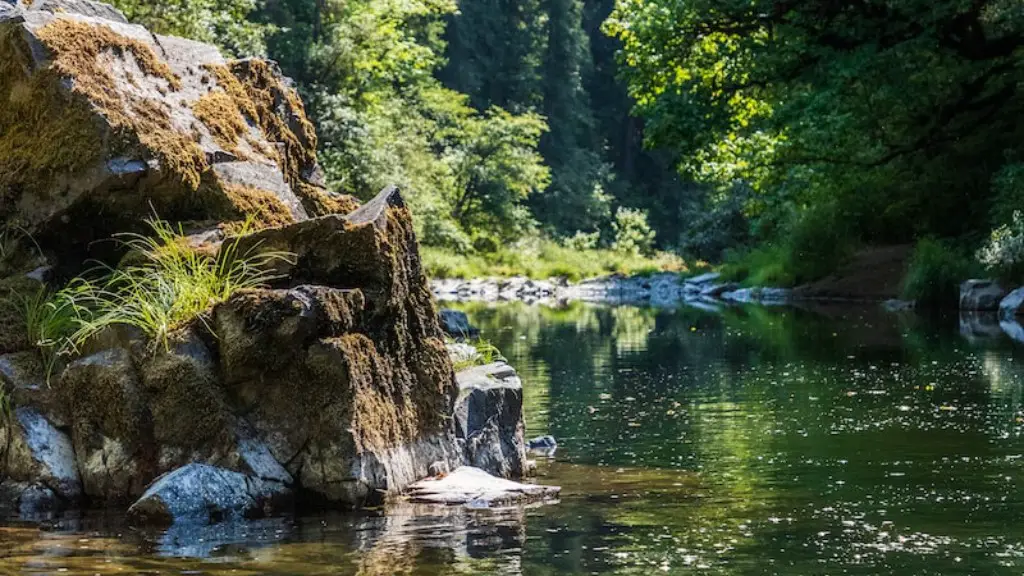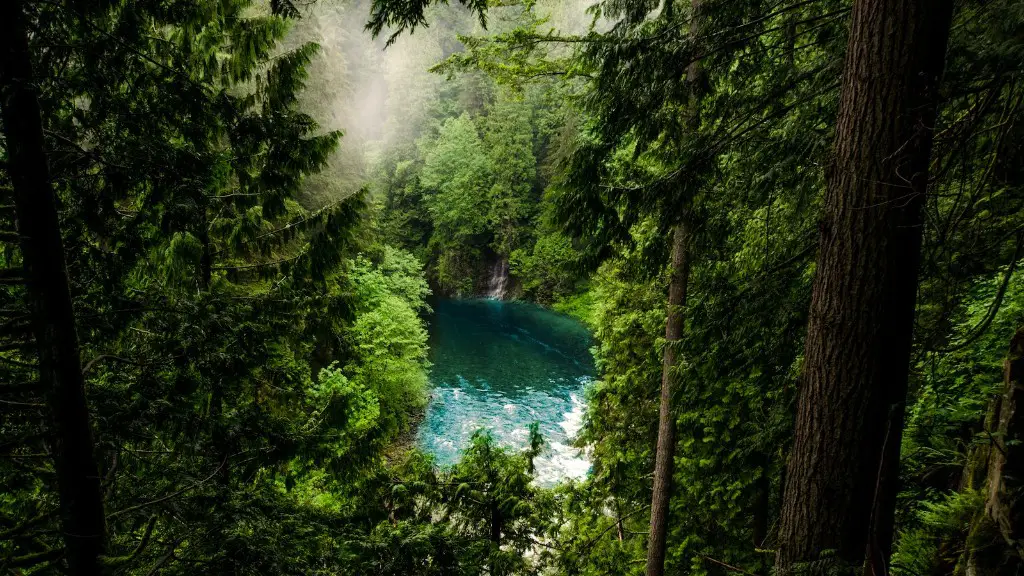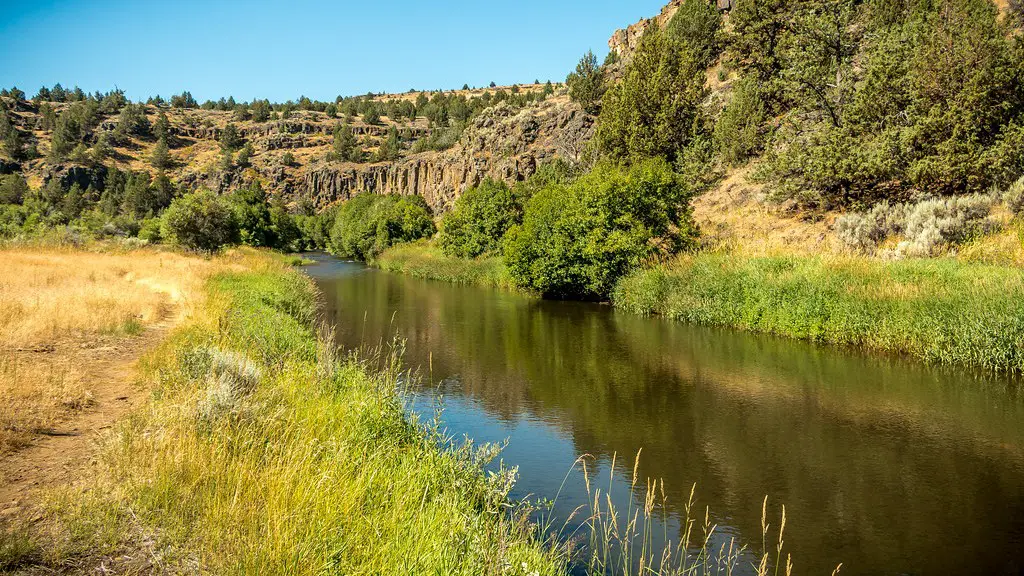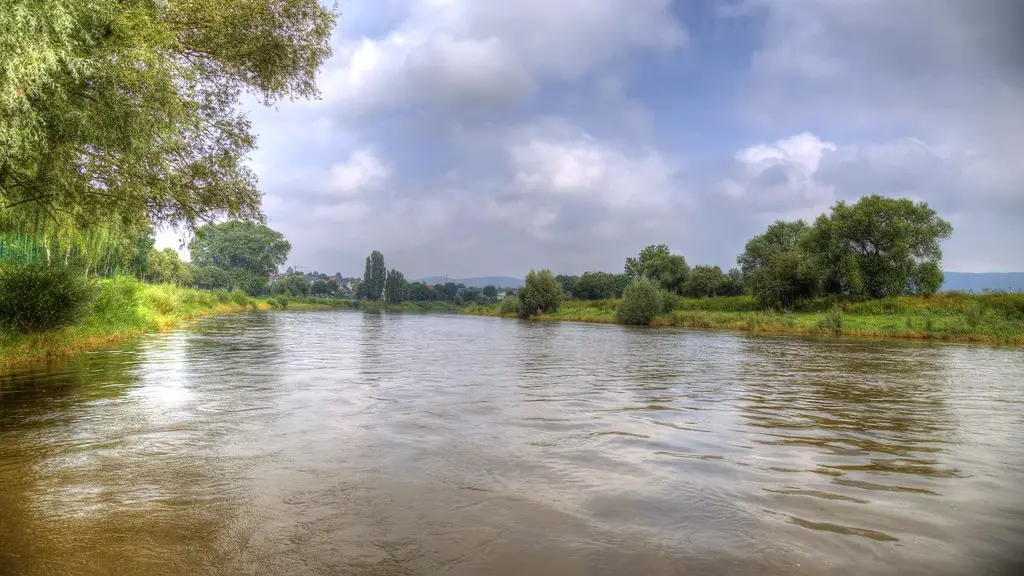Pollution
The Mississippi River is a major source of water, food and transportation, providing a variety of resources that are crucial to the region’s economy. Unfortunately, over time, it has also become subject to increasing levels of pollution. This pollution is caused by the discharge of untreated sewage and industrial waste into the river, as well as by runoff from agricultural land. As a result, the river has become increasingly polluted in recent years, and is now considered to be one of the most polluted rivers in the United States.
The pollution of the Mississippi has had a variable impact on both the quality of the environment and the health of the people that inhabit the river basin. One of the most obvious effects of the pollution is on the river’s biodiversity. The river is now known to host a wide variety of species, including fish, mussels and native aquatic insects. Unfortunately, due to the pollution, many of these species are now either extinct or threatened with extinction.
Another major issue resulting from the pollution is the health of people living near and around the river. This can be largely attributed to the presence of hazardous microorganisms, such as E. coli, that are present in the river, thanks to untreated sewage and other industrial waste. These toxins have a negative impact on human health, causing a variety of gastrointestinal, respiratory, and skin conditions.
The pollution of the Mississippi River is also having an effect on its recreational potential, as the quality of the river’s water has diminished significantly. This has deterred many people from taking part in outdoor activities, such as fishing and swimming, for fear of exposure to contaminants.
Furthermore, the pollution of the river has wide-reaching implications for the local and regional economy, as many of the businesses that use the river as a vital source of transportation have seen a decline in the quality of their services due to the increasing levels of pollution.
In order to address the pollution of the Mississippi, efforts by both state and federal authorities have been taken. This includes measures such as the establishment of stricter environmental regulations, investment in advanced wastewater treatment systems, and promotion of green initiatives, such as clean energy and sustainable farming practices. However, as the river is shared by many states in the region, continued cooperation and action will be essential in order to protect the quality of the water, both now and in the future.
Agricultural runoff
Agricultural activities are one of the leading causes of pollution in the Mississippi River. Agricultural activities involve the use of fertilizers, herbicides and pesticides, all of which can find their way into the river, leading to increased levels of pollution. This problem is further exacerbated by the fact that much of the land in the river’s basin is used for agricultural purposes, which means that the amount of pollutants that are released into the river is likely to be higher in that area.
This is especially problematic, as the Mississippi is the largest river in the United States and its basin covers parts of 31 states. This means that the implications of agricultural runoff are felt far beyond the local area and have a significant impact on the river’s water quality.
In order to tackle this issue, efforts have been taken in recent years to promote more sustainable farming practices. This includes the use of cover crops to reduce soil erosion and conserving water to reduce the need for irrigation. Additionally, buffer strips of grass and vegetation at the edge of fields can help to reduce runoff into local water bodies.
The importance of these measures is compounded by the fact that the Mississippi is an important source of water for many states in the region. As such, it is essential that efforts are taken to protect the water from further pollution and ensure that it remains safe for human consumption and recreational uses.
The problem of agricultural runoff in the Mississippi River is a serious one and it will take continual action from both the public and private sector in order to ensure that the water remains clean and healthy for future generations.
Overfishing
Overfishing is another problem that has been linked to the Missisippi River. Overfishing has long been an issue in the region, with the river’s abundant supply of fish making it a target for commercial and recreational fishermen. Unfortunately, this has led to a decrease in the population of certain fish species, with some, such as the paddlefish, being threatened with extinction due to excessive overfishing.
In order to protect fish populations, state and federal authorities have taken action to reduce overfishing. This includes things such as size limits, catch and release regulations, seasonal closures and the implementation of minimum size limits. Additionally, many states in the river’s basin have established fishing license programs, which aim to ensure that those taking part in fishing activities are doing so in a responsible and sustainable manner.
The issue of overfishing is compounded by the problem of water pollution, as contaminated water can also be linked to a decrease in fish populations due to the presence of hazardous microorganisms and other toxins. As such, it is important that both water pollution and overfishing are addressed in order to protect fish populations in the Mississippi River.
The importance of protecting fish stocks in the Mississippi cannot be overstated. Not only are they a valuable source of food and income for many people in the region, but they are also an important part of maintaining a healthy and balanced ecosystem.
Invasive species
Invasive species are non-native organisms that have been introduced to an ecosystem, usually due to human activity. In the Mississippi River, these species pose a serious threat to the river’s native fish and other aquatic residents. This is due to the fact that they are able to outcompete the native species for food, space and other resources, leading to a decrease in the population of local species.
In order to address this issue, numerous measures have been taken in recent years. These include the use of chemical treatments to eliminate invasive species, introducing predatory species to control the population of invasive species, and establishing marine reserves to protect native species.
Additionally, steps have been taken to reduce the introduction of new invasive species into the river, such as mandating the use of ballast water treatments on ships and banning the introduction of certain species, such as Asian carp and other non-native species.
Invasive species pose a serious threat to the ecosystem of the Mississippi River and it is essential that efforts continue to be taken in order to reduce their presence and protect the river’s native species.
Climate change
Climate change is another issue that is having an impact on the Mississippi River. Changes in temperature and precipitation patterns due to climate change can affect the quality of the water, the biodiversity of the river and the health of people living in the basin. This is due to the fact that climate change can increase the presence of pollutants by reducing runoff from agricultural land and by melting glaciers, which leads to an increase in the amount of sediment and nutrients fertilizer entering the river.
Not only can this have a negative impact on the water quality and ecosystem of the Mississippi, but it can also have implications for the local and regional economy. This is especially true in the case of extreme weather events, such as flooding, which can cause significant damage to infrastructure and agricultural land, leading to economic losses.
In order to protect the Mississippi River from the effects of climate change, efforts have been taken on both a local and federal level. This includes the implementation of clean energy initiatives, reductions in carbon dioxide emissions and the promotion of green building practices in order to reduce energy consumption.
Climate change is a serious issue and it is essential that more steps be taken in order to protect the Mississippi River from its effects. Doing so will ensure that the river is able to continue to provide a variety of resources for the people and businesses of the basin for years to come.
Future outlook
The future of the Mississippi River is heavily dependent on the actions taken to protect its resources. In order to secure the future of the river, it is essential that efforts continue to be taken in order to reduce the pollution of the river, as well as to address issues such as overfishing and invasive species. Additionally, action must be taken to address the threats posed by climate change.
The success of any effort to preserve the Mississippi River will require collaboration between both state and federal authorities, as well as local stakeholders. Only by working together can the quality of the environment in the river basin be improved and its resources protected for many years to come.
